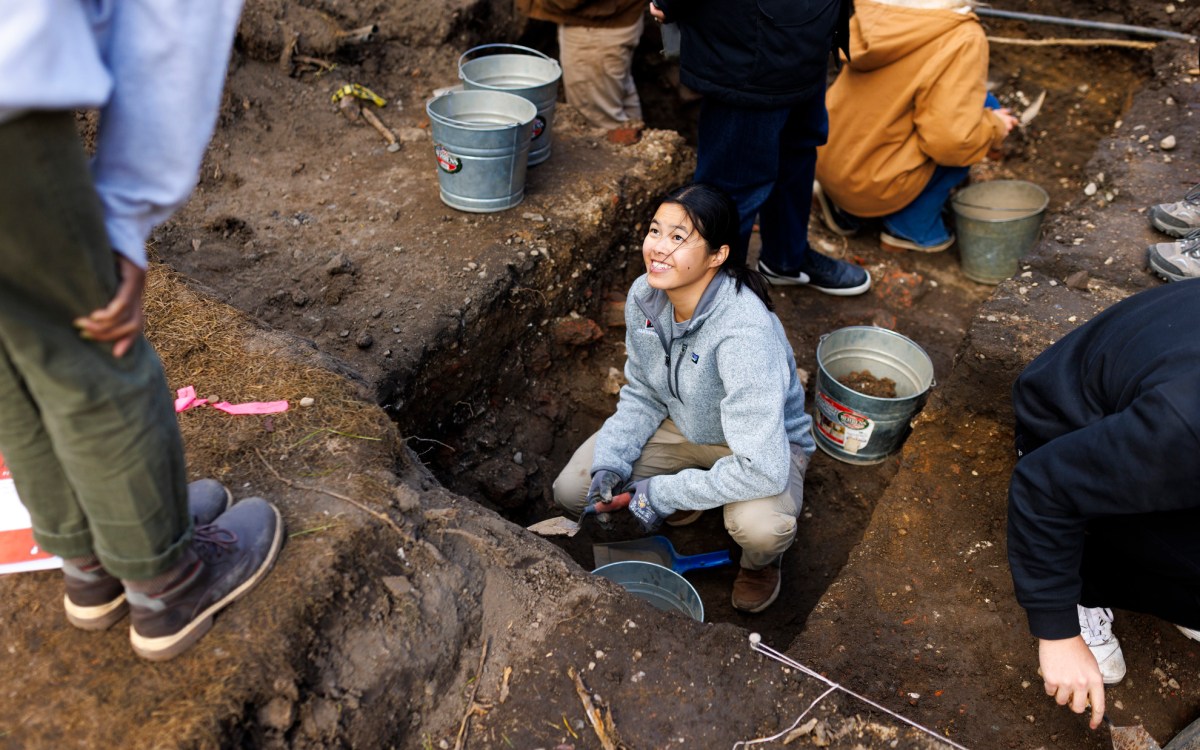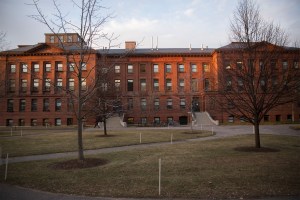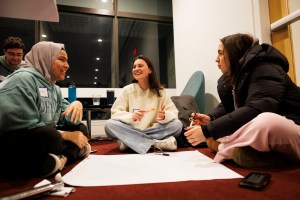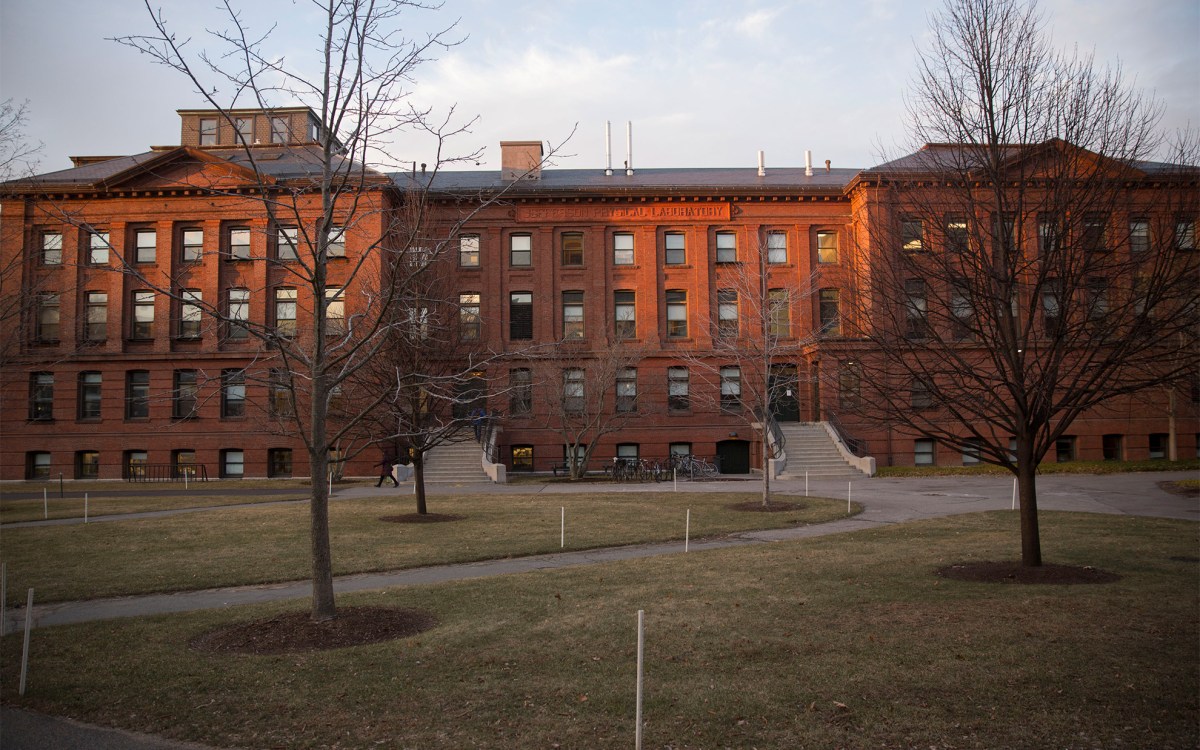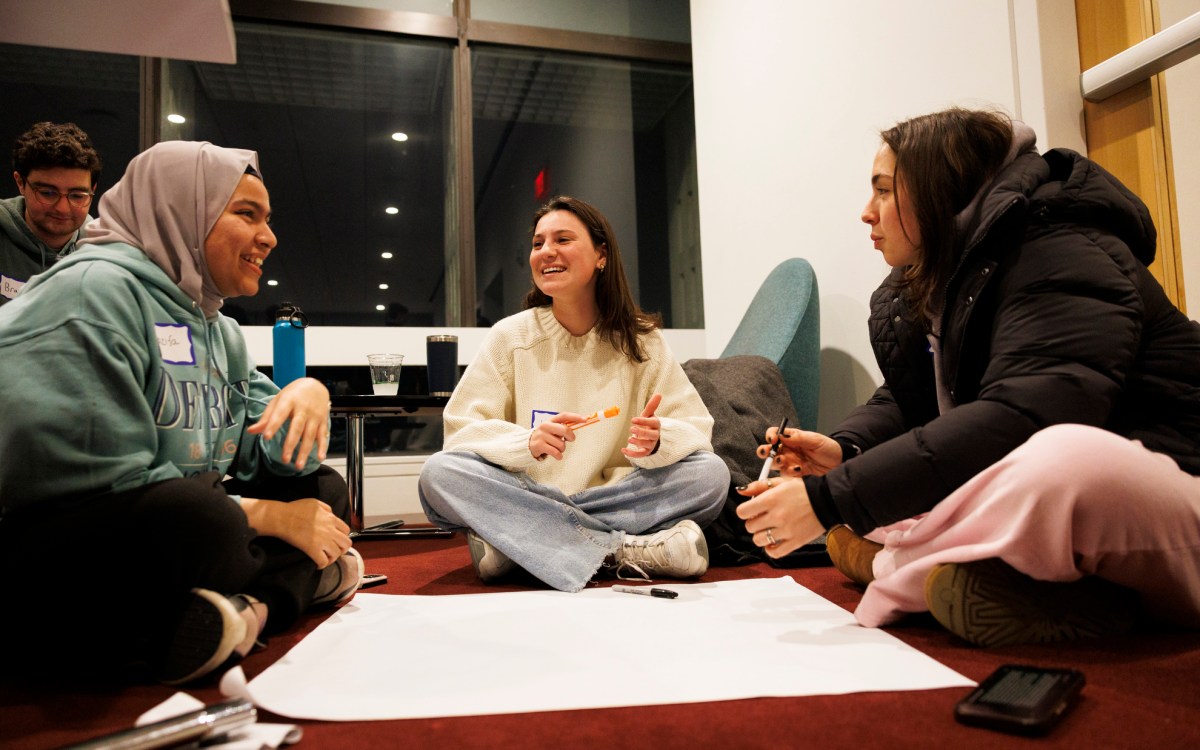Teachers learn to survive, prevail
Bok Center Teaching Conference imparts tips and wisdom to teaching fellows
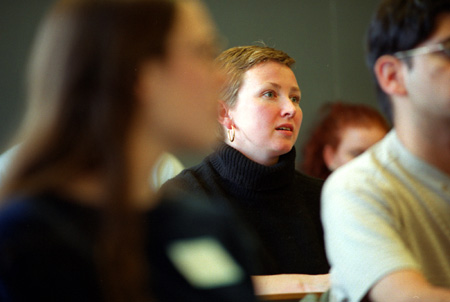
From meeting students on the first day of class to assigning grades on the last, 178 teachers of Harvard undergraduates picked up practical tips and insightful wisdom at the Derek Bok Center for Teaching and Learning’s Winter Teaching Conference on Tuesday (Jan. 29) in the Science Center. It’s the second of two annual conferences targeted primarily at graduate students who are teaching fellows.
The Teaching Conference’s sessions appealed to a broad range of experience, from nuts-and-bolts sessions that Bok Center Director Jim Wilkinson called “teaching survival kits” to panels on grading, science for nonscientists, and a session Wilkinson led on Kant and the ethics of learning.
As Harvard President Lawrence H. Summers shines a spotlight on undergraduate education, the Bok Center works to ensure that teachers of Harvard undergraduates have the tools and support they need to be their best. “It takes a very long time to become a good teacher. We shouldn’t underestimate how hard it is,” said Wilkinson. “It took me six years to learn to lecture without notes and to get over my fear. That’s a very long apprenticeship, and we can accelerate it.”
Nuts and bolts of teaching
For teaching fellows like Sarah Wall, an English Ph.D. candidate who will teach her first section in a few weeks, sessions such as “First Day of Class in the Humanities” gave a much-needed confidence boost. “I went to a liberal arts college as an undergrad. I’ve never been to a section, I’ve never seen a section … so I’m starting from zero. It’s so helpful to have a sense of what it will be like and what I should think about,” she said.
Experienced teaching fellow Susan Merriam showed Wall and her colleagues, nearly all of them about to teach a Harvard class for the first time, some of her tricks and tips for successful section leading. She addressed a number of issues, from balancing dissertation work and teaching to generating student discussion.
“I think good teaching is about contribution from everyone,” Merriam said. “It’s very rare that you … can’t encourage someone to participate on some level.” She uses e-mail, she said, to draw out reticent students by giving them class questions in advance.
Merriam warned participants that the nature of section discussions might thwart their best planning efforts. “Always come completely prepared,” she said, “but be prepared to throw the whole thing out the window.”
Making the grade
The complex topic of grading got ample discussion in a panel called “Reflections on Grading.” Susan Pedersen, professor of history and dean of undergraduate education; Daniel Goroff, professor of the practice of mathematics and associate director of the Bok Center; and Assistant Professor of Government Russ Muirhead probed the practical and theoretical applications of grading.
Calling discussions about grading and grade inflation “a hardy perennial — it comes up every five to 10 years,” Pedersen said that grading uncovers philosophical issues about what it means to improve and how students are motivated. “We all want our students to learn because learning is great,” she said. “But much as they do love their work, they do work for a grade.”
“Grading well is a really central part of teaching well,” said Muirhead, who admitted that he still hates grading but has grown to appreciate its importance. It signals to students how they’re doing, giving them vital information that helps them make choices about their concentrations or their careers, he said.
Goroff shared practical advice on teasing out grading inequalities from section to section and communicating expectations for grading to students in advance. All three panelists fielded questions about collaborating with fellow teaching fellows and faculty members to present a united grading front.
Science for the rest of us
Graduate students in the sciences packed the room to hear astronomer Eric Chaisson, director of Tufts University’s Wright Center for Innovative Science Education and associate at the Harvard College Observatory, speak on “Teaching Science to Non-Scientists.”
“I think it’s absolutely essential,” said Andrew Binks, a doctoral student in physiology. “If we don’t do it, we will start losing funding as the general population sees science as less and less important. It’s going to hit academia very, very hard.”
Chaisson echoed these concerns, which Summers also highlighted in his installation speech in October. “Scientists have an obligation, a responsibility, to share as well as to discover,” Chaisson said. “Unless we do a better job as scientists, sharing the love of science we have with the non-science community, then we may well be moving toward what I call a science-less society.”
Holding up The New York Times’ “Science Times” section as an example, Chaisson said that teaching science to nonscientists should give students an appreciation of science, if not a thorough understanding of it. Interdisciplinarity, putting science subjects into a larger perspective, and visualization — utilizing tools like videos, animation and wall posters, help scientists to “share the excitement and wonder of science to the general public,” he said.
A safe haven
While participants in the conference, from new teachers calming their nerves to old hands polishing their portfolios, indicated that the Teaching Conference was a success, Bok Center Director Wilkinson hoped that they’ll be back for more.
Comparing the conference to a crash course in a foreign language that prepares a traveler to order a meal but not engage in substantive conversation, he called the Teaching Conference “a start, but it’s not going to get you much better than the bare mechanics.”
“There’s a lot of front-loading that goes on in training,” said Wilkinson. “My ideal is someone who comes to orientation, tries some of this stuff out in class, gets the class videotaped, is able to get the tape reviewed by one of our staff, then gets a second class tape later in the semester. And then does it all over again the following semester.”
Patrick Fortmann, a doctoral candidate in German who teaches language and core courses, is a repeat customer who’s refined his skills at the center. “The Bok Center is a marvelous institution. It’s a place we can always turn to,” he said. “It’s a safe haven.”
